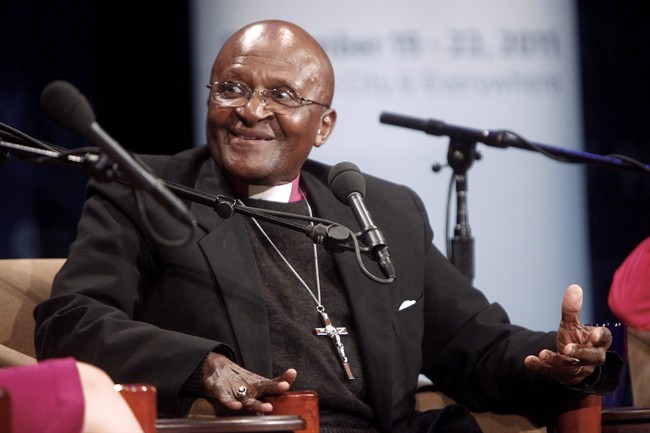JOHANNESBURG – Retired archbishop Desmond Tutu has defended the reconciliation policy that ended white minority rule in South Africa, saying the country has social and economic problems largely because of later mismanagement.

Some South Africans have described what they call entrenched racism in recent social media posts, and there have been growing allegations that the reconciliation process after the 1994 end of apartheid was too lenient toward the former white rulers.
As part of that process, Tutu chaired the Truth and Reconciliation Commission that investigated past atrocities and granted amnesty to some accused perpetrators. Today, some South Africans believe more former white officials should have been prosecuted.

Get daily National news
“The country is not in socio-economic trouble because its leaders led it down reconciliation road,” said Tutu, who has previously criticized South Africa’s current government. While the problems are partly due to challenging global conditions, he said, “they are largely due to poor mismanagement.”
Even Nelson Mandela, the anti-apartheid leader who became South Africa’s first black president, is being derided by some for “‘selling out’ in favour of white capital,” Tutu said in a statement.
Mandela, who died in 2013 at age 95, was widely credited with helping to avert a wider racial conflict by reconciling with apartheid leaders and creating a multi-racial democracy. However, some South Africans say he should have done more to wrest control of the economy from whites and share it among the black majority.
Last week, activists filed a legal complaint against the last apartheid president, F.W. de Klerk, saying he should be prosecuted for killings by security forces during apartheid.
Mandela and de Klerk were awarded the Nobel Peace Prize in 1993 for reconciliation efforts. Tutu was awarded the Nobel prize in 1984 for campaigning against apartheid.

Comments
Want to discuss? Please read our Commenting Policy first.